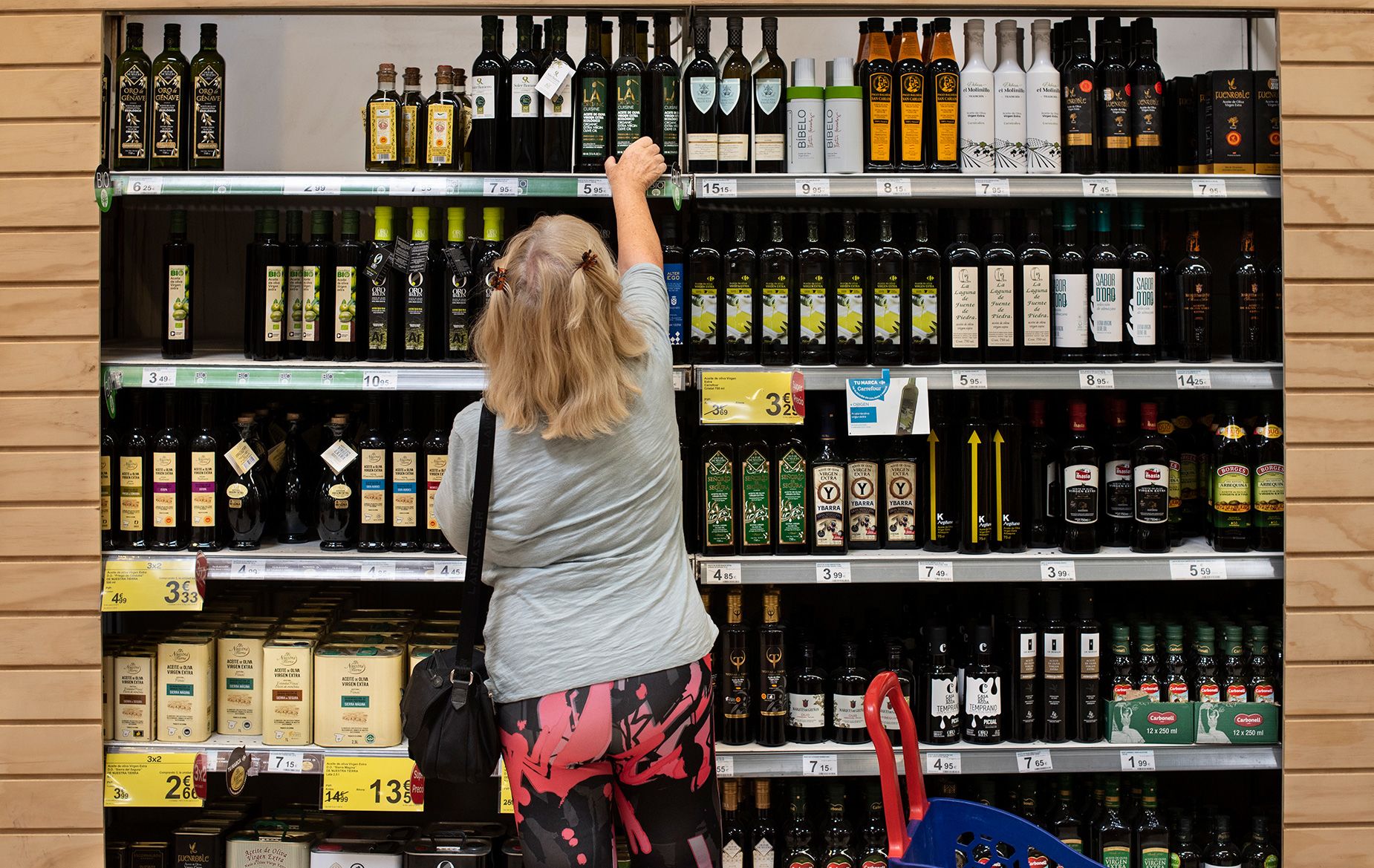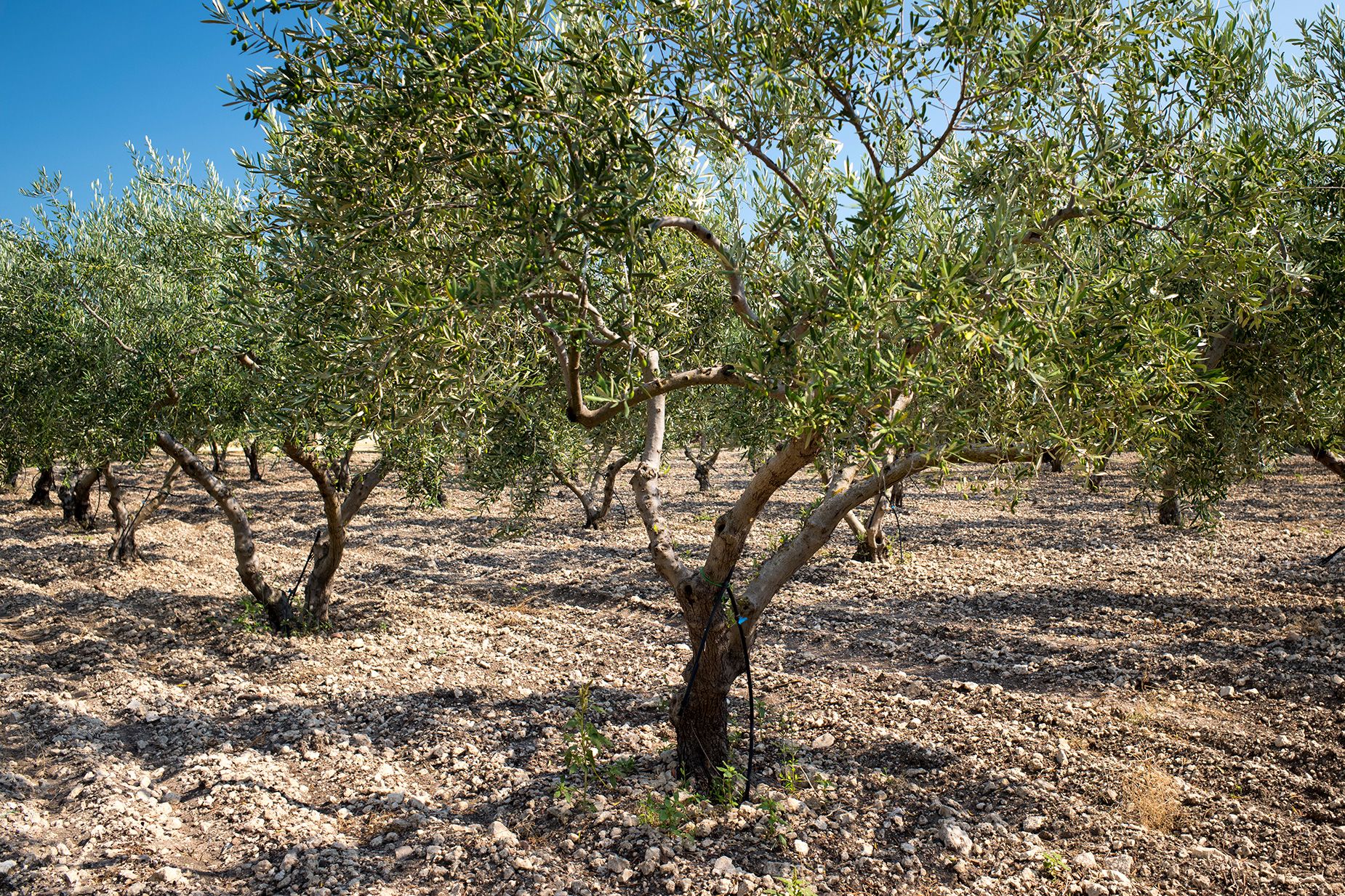Extra virgin olive oil is getting very expensive. And it might not even be real.
Olive oil has been a staple of the Mediterranean diet and culture for millennia. Before it ever made it to the table, it was used for medicinal and religious practices, earning the moniker “liquid gold” in Homer’s “Iliad.”
Throughout the centuries the olive branch has come to symbolize peace and prosperity, and pungent extra virgin and virgin olive oils are high-value global exports. Valued at $22.3 billion in 2022, the olive oil market is expected to increase exponentially over the next decade.
But behind the most popular extra virgin olive oils in the world – produced in Italy, Spain and Greece – are equally lucrative criminal enterprises cashing in on the gold rush by selling fake liquid gold that uses sunflower, canola or even lamp oil to create a product that can retail for up to $30 a liter in the United States.
In late November, authorities in Spain and Italy working with the EU’s Europol law enforcement agency said they arrested 11 people tied to one such criminal gang, sequestering 12 barrels containing some 260,000 liters of adulterated, or non-virgin or extra-virgin olive oil.
They also seized an additional 5,200 liters of market-ready quality oil that had been ready for export. The authorities said it was “unfit for consumption,” despite false labeling that claimed the oil was 100% Italian or Spanish.
Authorities also found 91,000 euros (almost $100,000) in cash, four high-end vehicles, falsified labels, and paperwork that stated the oil was Spanish and Italian-grown when sample tests revealed it was more likely made by mixing olive oil byproducts with other types of oil.

Rising demand
“A mix of various factors, such as the general inflation of prices, reduced olive oil production and increasing demand, have created the perfect breeding ground for fraudulent producers,” according to a Europol statement.
“Unfortunately, the faking of extra virgin olive oil is a common practice, which is why the fight against it is a law enforcement priority — especially in production countries,” the law enforcement agency added.
Infusing high quality olive oil with lesser products has become a common practice as rising demand for Mediterranean oil exports is countered by lower production rates driven by increasingly harsh weather extremes, says Coldiretti, Italy’s main farming organization.
Fraudsters have also increasingly been using chlorophyll or beta carotene to color the oil its characteristic green or buttery yellow hues.
In 2023, Mediterranean oil production was down by 41%, Coldiretti said. An extremely wet spring meant olive trees flowered less and record-setting heat in summer shriveled the olives that did grow.
That’s left producers unable to meet marketplace demand.
The so-called “agri mafia” in the Mediterranean oil producing regions has been moving in to fill the gaps in supply, developing its fake extra virgin olive oil operations.
“Mixing consumer-grade olive oil with lower grade alternatives allowed the criminals to offer competitive prices while entering legal supply chains,” Europol says.
“This illegal practice can not only cause a public health risk, but also undermine consumer trust and thus have further economic repercussions,” the statement warned.

Chainsaw attacks
While their doctored products are far from authentic, the criminal gangs do need quality olives for the base oil that is used to create their blends.
This has led to an uptick in the theft of whole olive trees or productive branches. In Greece and Italy, thieves have regularly been taking chainsaws to ancient trees to steal olive-laden branches.
Olive harvesting is a delicate process, so stealing entire trees or branches is easier than picking the fruit, even though it often leaves the trees heavily damaged.
Authorities in Greece, Spain, and Italy have also reported higher incidents of olive warehouse break-ins and the destruction of harvesting equipment as an attempt to delay harvest so the thieves could take the olives instead.
Spanish and Italian authorities who made the breakthrough arrests in November said investigations began after “anomalies” were spotted. This included a report of a truck of lesser-quality olive oil entering a production plant where oil destined for export was being produced.
Olive oil is one of the most fraudulently labeled foods in Europe and one of the most often investigated, according to a 2022 report by the European Commission.
The fake olive oil racket is driven by demand, Coldiretti says.
Extra virgin olive oil prices are not likely to fall any time soon, despite the bad harvest in 2023. After a Spanish drought in 2022, prices of olive oil from Spain (the world’s largest producer of the extra virgin variety) jumped by more than 80%, according to the European Union. The price of Italian oil increased by 66% even though last year’s harvest was not below average.
This year both countries suffered severe production shortages, which means prices for the 2024 export season are expected to rise even more, making the market even more attractive to criminals.
Credit: Source link